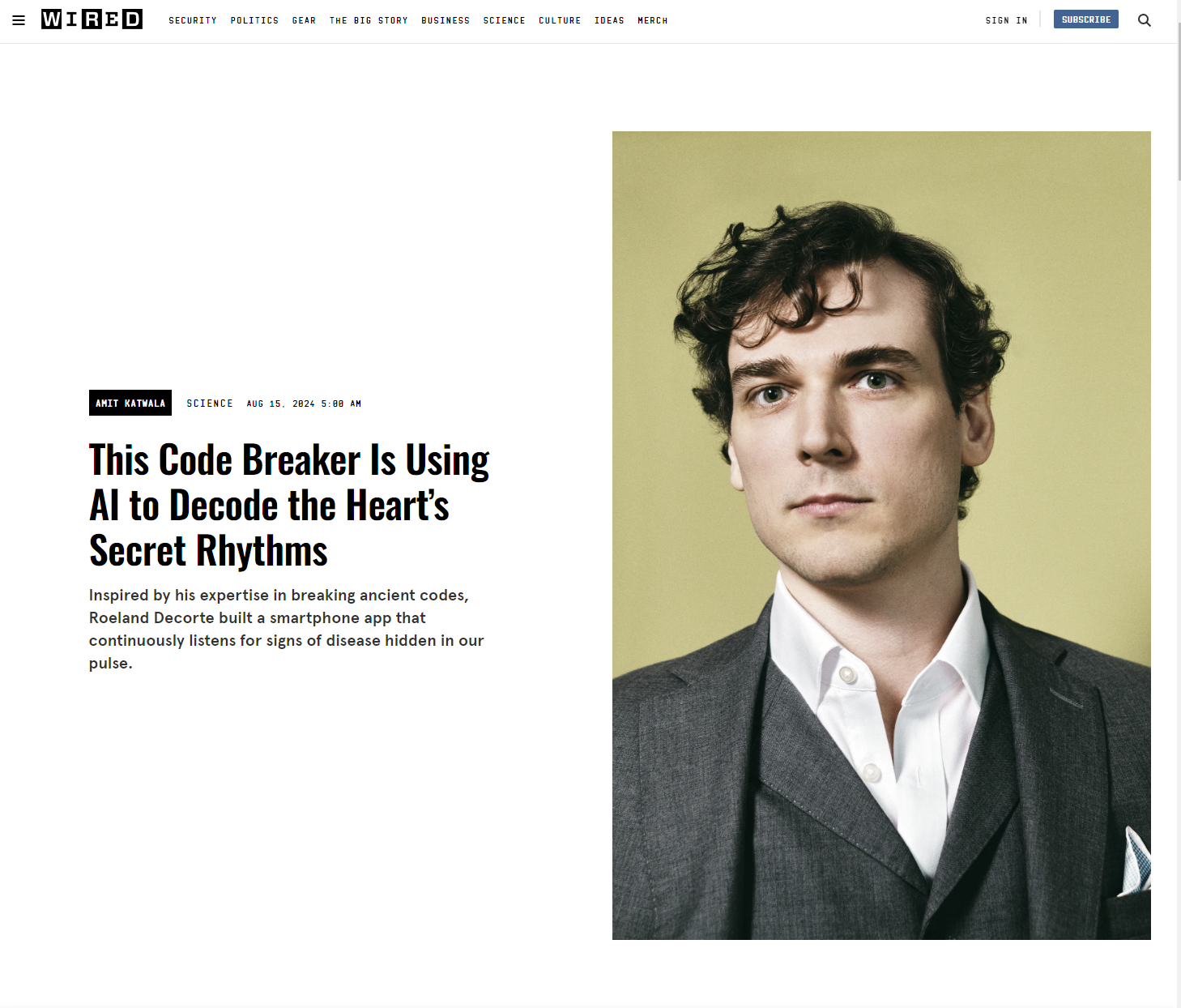Foundational AI extracting health data from sound




Decorte Future Industries’ trading name is Sonus Health. Find our consumer website at www.sonus.health
Listen to the human body
We’re building ground-breaking AI, built upon fully proprietary databases, that screen for heart, breathing, brain and gut issues in any human or animal, using only sound collected by a standard microphone. Our first product is the Sonus Health App, scanning dogs’ hearts using smartphone microphones.
Every day bodies are generating vital data – data that can save lives, reduce costs, predict what’s ahead, and help combat and prevent illness. The problem? No one is listening. We listen.
Starlink of health screening
Our SoNUS AI is democratising access to health and wellness screening across the globe, and across species. We seek to bring what once was a luxury for the ultra-rich – concierge health monitoring – into the hands of everyone: from you to your pet.
All you need is a smartphone.
With microphones already in all our pockets, SoNUS can reach everyone. Even those with little or no access to traditional healthcare. We partner with local organisations in areas where there is no easy access to traditional healthcare to seek to achieve this.
































